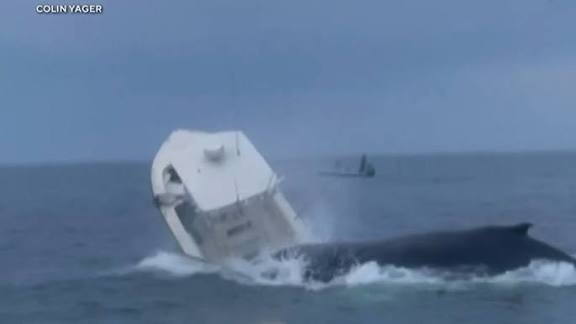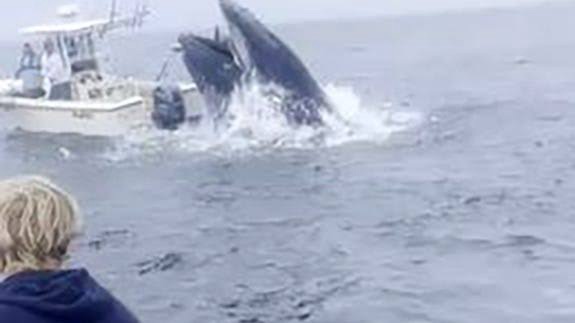
New Title: Rogue of the Deep: The Whale That Turned Against Fishermen
The ocean is vast and unpredictable, a realm where humans are mere visitors. Yet even seasoned fishermen, who spend their lives reading the sea’s moods, can find themselves at the mercy of forces far greater than they can imagine. Such was the case off the coast of Patagonia, when a routine fishing expedition turned into a nightmare after a massive whale attacked a small fishing boat, nearly sending its crew to a watery grave.
It was early morning when the fishing vessel Mar Azul, a 40-foot wooden boat, set out to sea. The weather was calm, the water glassy beneath a pale sunrise. Captain Luis Herrera, a veteran fisherman of twenty-five years, and his three-man crew were in good spirits. They had planned to haul in a catch of squid and small tuna, just as they had done countless times before. None of them could have imagined that this day would mark one of the most terrifying experiences of their lives.
Around mid-morning, as the crew cast their nets, something massive stirred beneath the surface. At first, they assumed it was a school of large fish. Then, without warning, a huge dark shape emerged — a whale, easily over 50 feet long. Its slick, black body glistened as it surfaced only meters from the boat. The crew watched in awe, until the creature suddenly slammed its tail into the side of the vessel, sending a shower of seawater over them.

The first hit caused panic. The Mar Azul rocked violently, and one fisherman, Jorge Ramirez, was thrown to the deck. “It was like being hit by a truck from underneath,” he later recalled. Herrera quickly tried to steer the boat away, but the whale wasn’t finished. Moments later, it charged again, striking the hull with enough force to crack one of the wooden planks. The sound of splintering wood and roaring waves filled the air.
For nearly ten minutes, the whale circled the boat, rising and diving, occasionally brushing against it. Some experts later suggested that the animal might have mistaken the vessel for a rival or intruder in its territory. Others believe it could have been disoriented or injured, its behavior driven by stress or confusion caused by underwater noise pollution.
With water seeping into the hull, the crew scrambled to stay afloat. Herrera radioed for help, and a nearby fishing vessel responded. By the time rescuers arrived, the whale had disappeared back into the depths, leaving behind a battered but still-floating Mar Azul. The crew was shaken but unharmed. “It felt personal,” Herrera said. “Like the sea itself was angry at us.”
Marine biologists who later examined the area believe the whale may have been a fin whale or possibly a large orca, both species known to frequent those waters. While whale attacks on boats are rare, they are not unheard of. In recent years, similar incidents have been reported off the coast of Spain and Portugal, where pods of orcas have been damaging yachts and fishing boats. Researchers are still trying to understand the reason behind this unusual behavior.
The Mar Azul was eventually towed back to port, its side dented and paint stripped by the force of the blows. For Captain Herrera and his crew, the sea no longer felt like a familiar friend. “I’ve seen storms, I’ve seen sharks, but I’ve never seen anything like that,” Herrera admitted. “It makes you realize how small we really are out there.”
The story of the Mar Azul serves as a stark reminder that nature, even in its beauty, remains untamed. The sea gives, but it can also take — and when the creatures of the deep rise against us, all we can do is hold on and hope to survive.


